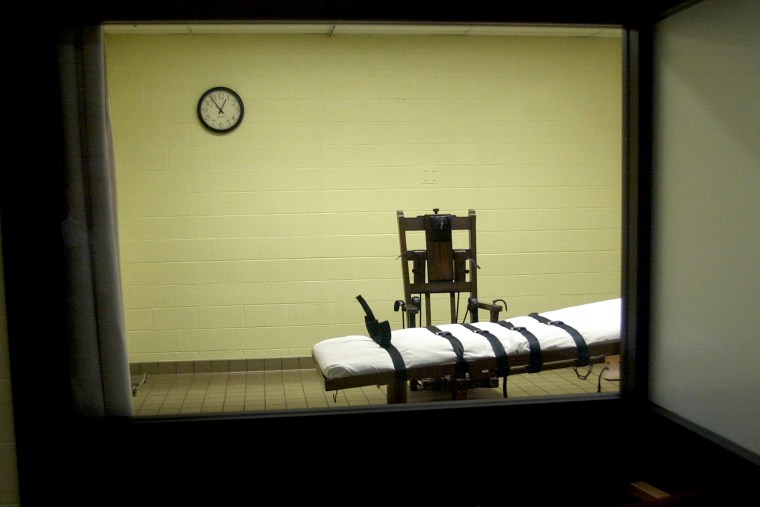Currently in Tennessee, there is a battle underway between 10 death row inmates who want the names of their executioners released, along with the names of drugs that will be used to kill them through lethal injection. This comes in the wake of a 2013 law that made the details of such executions, from the drugs used, to the identities of their administrators, a protected secret in that state. Lawmakers there, of course, want that secrecy maintained.
As the debate over the death penalty and the use of controversial drug cocktails for lethal injections becomes increasingly heated, the call for maintaining secrecy over these matters should come as no surprise. Americans have often been fond of enjoying a lifestyle without seeing the ugly process that makes that lifestyle possible.
We want cheap shoes, but don’t want to see photos of seven-year-old kids in third world countries handcuffed to sewing machines to make them. We want hamburgers, but don’t want to see grainy black and white videos of rampant work code violations and otherabuses at slaughter houses. We went to war with Iraq and Afghanistan, but didn’t want to see flag laden caskets being carried off of Boeing C-17 military transport aircraft in Washington, D.C., bringing back our fallen soldiers.
Therefore, it is not surprising that there are calls for stopping, or at least delaying, lethal injections as a means of enacting the death penalty in the United States after recent botched executions made national headlines -- in addition to the call for the end the related secrecy. Too many Americans want a coward’s justice, quick and easy results without fully accepting the methods underpinning our culture. But we're evolving towards a time in which we may soon face the truth.
Yes, the recent lethal injection execution of Michael Worthington in Missouri went off without a hitch. He died quietly and quickly just days ago. But, this was in stark contrast to recent high-profile executions in Arizona and Oklahoma, during which inmates gasped, convulsed and twitched for hours before dying due to untested, or unreliable, lethal injection drugs.
These drugs have been hard to come by for states in recent years as American companies fearing controversy have stopped making the drugs. The European Union has banned the shipping of these drugs to the United States. As a result, states have been reduced to mixing untested, lethal injection drug cocktails, which have resulted in obviously painful deaths for those receiving the doses. Hence the secrecy now under scrutiny in Tennessee. But that secrecy is hardly a solution.
Because arguments over the method of employing the death penalty, or trying to control the details of its implementation, simply mask the cruel reality that many don’t want to face. In the grand debate about whether capital punishment should remain a part of American justice, does it really matter if a group of state-appointed mixologists fail to come up with a proper chemical compound to kill someone “nicely," while authorities shroud their failures to do so?
Calls to delay all lethal injections, and a recent Department of Justice review requested by President Obama, among other methods, are all just stop gaps to avoid this political and social reality: Americans are increasingly uncomfortable with the death penalty itself, but we lack the moral and legal creativity to come up with an alternative method of punishment. Chief Judge Alex Kozinski, of the U.S. Court of Appeals for the Ninth Circuit, put it best in his dissent on a failed stay of execution for Joseph Rudolph Wood in Arizona.
"[E]xecutions are, in fact, brutal, savage events, and nothing the state tries to do can mask that reality," he stated. "Nor should we. If we as a society want to carry out executions, we should be willing to face the fact that the state is committing a horrendous brutality on our behalf."
Arguing over the methodology of lethal injection is a waste of time. If those implementing the penalty and advocates of the policy are disturbed when the process is brutal because of the failures of available drugs, or they feel the need to hide their methods, then they should reconsider their position on the death penalty.
It might be time for Americans, on the policy level, to recognize what most civilized people and nations around the world have already concluded: The death penalty is unnecessary, arbitrary and does not advance the cause of justice. Unfortunately, this admission might not come anytime soon.
But what else can we expect from an American society that wants its breakfast sausage as long as no one mentions Babe?
Dr. Jason Johnson is a professor of Political Science at Hiram College and author of the book "Political Consultants and Campaigns: One Day to Sell."
